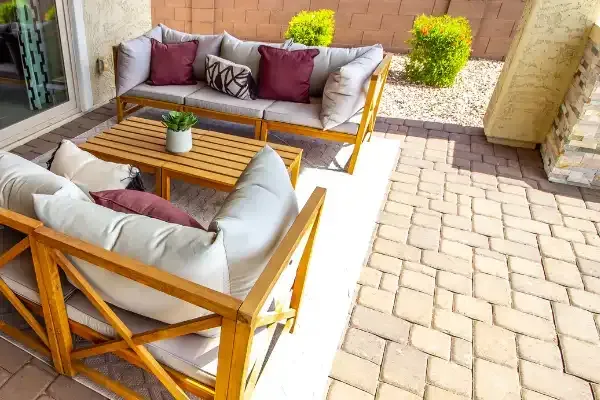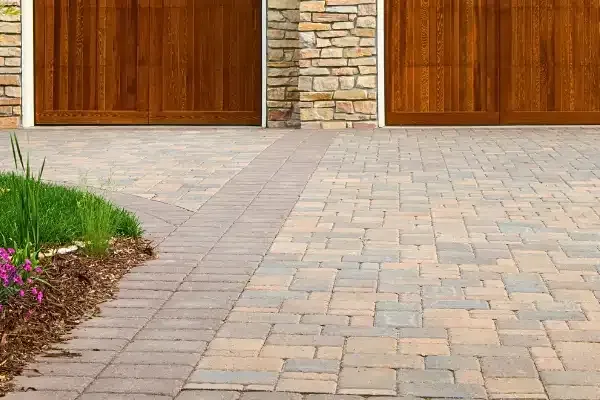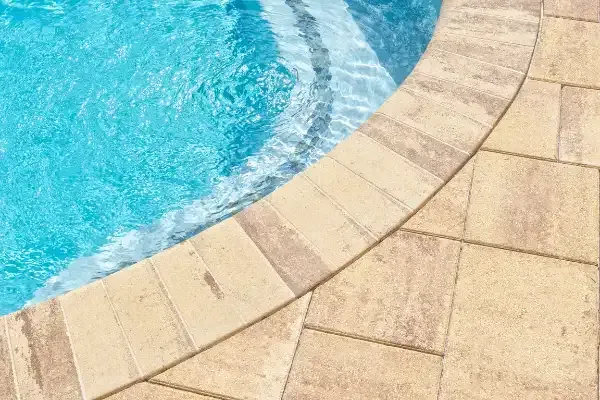When it comes to enhancing your outdoor space, the choice of paver materials is crucial. The right paver can transform your driveway, patio, or walkway into a stunning feature that complements your home’s architecture and landscape. In this blog, we’ll explore the different types of paver materials available and guide you through selecting the best option for your needs.
Understanding Different Types of Paver Materials
Choosing the right paver material depends on your budget, the style you want to achieve, and the durability you require. Here are the most popular options:
Concrete Pavers
Concrete pavers are a versatile and affordable option for many homeowners. They come in various shapes, colors, and textures, allowing for creative designs. Concrete pavers are durable and can withstand heavy traffic, making them ideal for driveways and patios. However, they may require sealing to protect against stains and weathering.
Brick Pavers
Brick pavers offer a classic and timeless look. Made from natural clay, they are known for their durability and color retention. Brick pavers are an excellent choice for walkways and patios, providing a warm, earthy aesthetic. They require minimal maintenance, though they may be more expensive than concrete options.
Natural Stone Pavers
For a high-end, luxurious appearance, natural stone pavers are the top choice. Materials like flagstone, slate, and granite offer unique textures and colors, ensuring that no two stones are alike. Natural stone is extremely durable and can last a lifetime, but it comes with a higher price tag and may require professional installation.
Permeable Pavers
Permeable pavers are an eco-friendly option that allows water to seep through, reducing runoff and promoting groundwater recharge. They are perfect for areas prone to flooding or for homeowners looking to create a sustainable landscape. Permeable pavers come in various materials, including concrete and natural stone.
Factors to Consider When Choosing Paver Materials
Selecting the right paver material involves considering several factors:
- Climate: Your local climate affects the durability and maintenance of paver materials. For example, freeze-thaw cycles can cause some materials to crack.
- Budget: Consider the cost of materials, installation, and maintenance when choosing pavers.
- Aesthetic Appeal: The style and color of pavers should complement your home’s exterior and landscape design.
- Functionality: Different areas require different levels of durability. For example, driveways need stronger, more resilient materials than garden paths.
How to Choose the Best Paver Materials for Your Outdoor Space
FAQs
How do I maintain my paver patio or driveway?
Regular maintenance includes sweeping, occasional washing, and sealing (if necessary) to protect against stains and weathering. Replacing damaged pavers is straightforward and helps maintain the integrity of your space.
Are natural stone pavers worth the investment?
Yes, natural stone pavers offer unmatched beauty and durability. While they are more expensive, their longevity and unique aesthetic can significantly enhance your property’s value.
Can I install pavers myself, or should I hire a professional?
While some DIY enthusiasts can install pavers, professional installation ensures proper foundation, leveling, and long-term durability, especially for complex designs and larger areas.
What are permeable pavers, and when should I consider them?
Permeable pavers allow water to pass through, making them ideal for areas with drainage issues or for eco-conscious homeowners looking to reduce runoff and promote groundwater recharge.





